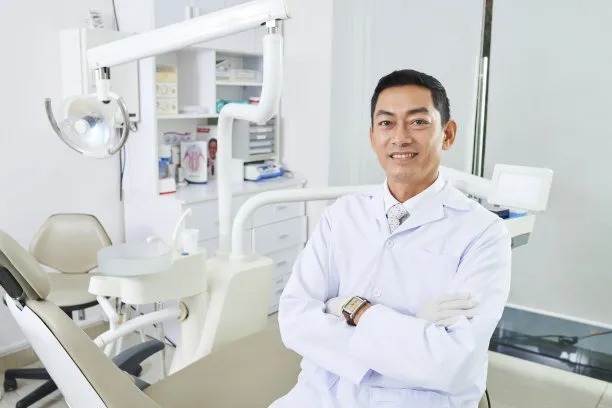Summary: Extracting a tooth can be a significant step towards better oral health management. This process is often seen as a last resort when other treatments are insufficient. Understanding why tooth extraction is necessary, the various indications for the procedure, the process involved, and post-extraction care is crucial for maintaining long-term oral health. The article will delve into these aspects to shed light on the importance of this dental procedure and how it can lead to improved overall dental health.
1. Reasons for Tooth Extraction

Tooth extraction may be required for various reasons. One of the most common indications is dental decay that is so extensive that it compromises the integrity of the tooth. When decay reaches the pulp chamber, causing significant pain and infection, extraction often becomes necessary to preserve the surrounding teeth and overall oral health.
Another prevalent reason for extraction is gum disease, specifically when the condition has progressed to a stage where the support structures of the teeth are severely damaged. Extracting teeth affected by periodontal disease can help prevent further complications and facilitate better oral hygiene.
Impacted wisdom teeth are also a leading cause for extraction. These teeth can become trapped in the jawbone or beneath the gums, leading to inflammation, discomfort, and other dental issues. Removing them can prevent infections and misalignment of other teeth, contributing to better oral health.
2. The Extraction Process Explained
The tooth extraction process typically begins with a thorough examination to assess the condition of the tooth and surrounding tissues. Dentists will often take X-rays to determine the positioning of the tooth within the jawbone. This step is crucial for planning the extraction procedure accurately.
Once the planning phase is complete, the dentist administers local anesthesia to numb the area, ensuring that the patient experiences minimal discomfort during the extraction. In more complex cases, such as surgical extractions, general anesthesia may be used for the patients comfort.
During the extraction, the dentist will use specialized instruments to loosen the tooth from its socket gently. In cases of surgical extractions, an incision may be made in the gum tissue to access the tooth. Once the tooth is removed, the dentist will clean the area thoroughly and may place sutures if necessary.
3. Post-Extraction Care Importance
After the extraction, proper care is essential for healing and preventing complications such as dry socket. Dentists usually provide detailed instructions, including recommendations to rest and avoid strenuous activities for at least 24 hours following the procedure.
Patients are advised to follow specific dietary guidelines, including consuming soft foods and avoiding hot beverages for the initial days. Maintaining proper oral hygiene is crucial but should be done with caution to avoid disturbing the extraction site.
It is also important to monitor the extraction site for any signs of infection or unusual bleeding. Should these occur, patients are encouraged to consult their dentist promptly. Following the recovery instructions can significantly enhance the healing process and keep the mouth healthy.
4. Long-Term Benefits of Tooth Extraction
When performed for valid reasons, tooth extraction can lead to various long-term benefits. By removing problematic teeth, dentists can help to alleviate pain and discomfort, resulting in a more pleasant oral experience for patients.
Furthermore, by addressing issues like overcrowding or jaw misalignment through strategic extractions, patients may find it easier to maintain an effective oral hygiene routine. This can lead to healthier teeth and gums overall.
Additionally, in some cases, tooth extraction can be a preliminary step toward further dental treatments, such as braces or implants. Thus, in the broader context of oral health management, tooth extraction is not merely about removal but serves as an investment in a healthier future.
Summary:
This article has outlined the significance of understanding tooth extractions process and importance for better oral health management. By discussing the reasons for extraction, the procedure itself, post-care necessary for proper healing, and long-term benefits, we see the crucial role tooth removal can play in preventing greater dental issues.
This underscores the necessity for individuals to stay informed about their dental health and seek professional advice when faced with dental dilemmas.
This article is compiled by Vickong Dental and the content is for reference only.
Vickong Dental
Vickong Dental is a large medical group established in Hong Kong in 2008 by professors from well-known medical universities in Guangdong and Hong Kong, as well as medical doctors from key national '985' universities (including Master's supervisors and senior professors). The chain of branches brings together expert dentists with PhDs and Master's degrees from Hong Kong and Mainland China, committed to providing high-quality dental treatment.
"Vickong Dental Practices the University Motto of 'Healing and Serving Society,' with a Stable Operation for Sixteen Years. It Has Been honored with Hong Kong Enterprise Leaders's Choice,' and is a Global Trusted Implant Center for the Nobel Implant System. Recommended by Hong Kong Metro Broadcast and Guangdong Television, it Serves Customers from Over Thirty Countries and Regions, Gaining the Trust and Favor of Citizens from the Guangdong-Hong Kong-Macau Greater Bay Area and Surrounding Cities.

Thousands of customers' unanimous praise
The most recognized and highly recommended dental service by customers in the Guangdong-Hong Kong-Macau Greater Bay Area
We Ensure You Receive Detailed Care and Attention Here
Hong Kong standards, Shenzhen prices, Your Trusted English-speaking dentists

Vickong Dental Medical-Grade Instrument Disinfection Process
Vickong Dental Medical-Grade Instrument Disinfection Process

Vickong Dental Chain: A Warm and Comfortable Environment for Treatment






Appointment Hours

Q&A
Why choose Vickong Dental?
Vickong Dental practices the university motto 「Medicine to Benefit Society」, with each branch bringing together highly qualified dentists with doctoral and master’s degrees from Hong Kong and the Mainland, and has maintained seventeen years of steady operation。Recipient of 「2024 Hong Kong Enterprise Leaders Brand」, 「2025 Hong Kong Enterprise Leaders Brand」, a Nobel Biocare Global Trusted Implant Center, and a brand recommended by Metro Radio Hong Kong and Guangdong TV。
To date, we have served customers from more than thirty countries and regions,earning exceptionally high word-of-mouth recognition and trusted recommendations from residents across the Guangdong-Hong Kong-Macao Greater Bay Area and surrounding cities
We have eight major branches in Zhuhai、Shenzhen,and a consultation and service assurance center in Hong Kong,so you can book a free consultation at any time for any questions,which is very reassuring.
If I do not accept the quotation after the CT scan, will I be charged??
No! As long as the actual treatment has not started, you will not be charged any fees.
Will there be any additional charges during the treatment process?
No, there won’t be any additional charges. Before treatment begins, we will clearly explain the treatment plan and its corresponding fees. Only after the patient agrees and signs the consent form will we proceed with the dental service.
Can I pay in Hong Kong dollars?
Yes. Vickong Dental accepts payment in Hong Kong dollars. The amount will be converted based on the exchange rate of the day, and the applicable rate will be clearly communicated to you in advance.
Can I reschedule my appointment at any time?
Yes. Please contact us via **WeChat** or **WhatsApp** as early as possible, providing your original appointment time and details, along with your preferred new date and time slot for rescheduling.













